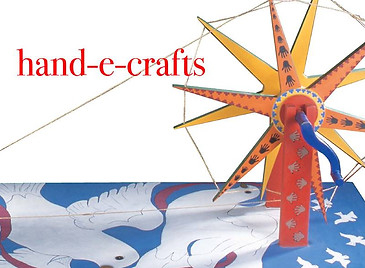
Eternal Gandhi
DISMANTLE ALL BOUNDARIES
National Gallery of Modern Art, Mumbai, 2006

Eternal Gandhi
National Gallery of Modern Art, Mumbai, 2006
Eternal Gandhi
DISMANTLE ALL BOUNDARIES

Winner
ID Magazine Design Award,
New York
2002
Eternal Gandhi

Winner
ID Magazine Design Award,
New York
2002

.png)

_edited%20(weco.png)


Creative Spirituality, Technology, Culture & Design



.png)
.png)



.png)


.png)
The World of
RANJIT MAKKUNI











National Gallery of Modern Art, Mumbai, 2006
.jpg)
Eternal Gandhi
.jpg)

DISMANTLE ALL BOUNDARIES
Boundaries disappear when we hold each other.
The Unity Pillar installation continues exploration into collaborative interfaces. It requires people to hold hands to light up a pillar symbolizing the destruction of caste prejudices and social in justice. Here the computer has totally disappeared and people themselves have become the interface, touching each other, touching loving, human hands, not objects, and dissolving the skins of their otherwise separate bodies into a single, unified collaborative body.
Eternal Gandhi


Winner
ID Magazine Design Award,
New York
2002






Project Overview.




Heading 1
Interactive prayer Wheels
Heading 1
The project presents a language of physical interface actions derived from classical symbols of the spinning wheel, turning of the prayer wheels, touching symbolic pillars, the act of hands touching sacred objects, collaboratively constructed quilts, sacred chanting in the collective group, the satsanga, and the touching and rotating of prayer beads.
These tradition based interactions inspire a rich panorama of tactile interfaces that allow people to access the multimedia imagery and multidimensional mind of Gandhiji. The technology developed does not ‘merely scan’ Gandhian images. It extrapolates Gandhian ideals to newer domains of product design and, at higher levels, the creation of meaning in a globalized world. For example, the Gandhian commitment to hand- based production and its symbiotic relationship with nature is interpreted in the context of modern culture-conscious design. Here lies the reaffirmation of the Gandhian view, a commitment to the dignity of labour, the bridging of divides, and the leveraging of village creativity and cultural diversity in the face of homogenization.


.jpg)
.jpg)
Dismantle divides!
the Unity Pillar installation continues exploration into collaborative interfaces. It requires people to hold hands to light up a pillar symbolizing the destruction of caste prejudices and social in justice. Here the computer has totally disappeared and people themselves have become the interface, touching each other, touching loving, human hands, not objects, and dissolving the skins of their otherwise separate bodies into a single, unified collaborative body.
CNN review.


.jpg)

E Train. The E-train explores Gandhiji’s rediscovery of India. After his arrival from South Africa, he embarked on a journey throughout the land of his birth.

The dimensions of Gandhiji's hymn Vaishnava Janato.


Gandhi Clock.

Life of Gandhi mapped on to a clock.

Children’s animations play back in a kaleidoscope.

Gandhi's messages on cubes.

Eulogies to Gandhi.

The 11 vows of a Satyagrahi.
Capturing the 11 vows of the Man of Truth, the Satyagrahi, the pillar is divided into 11 spin-able, rotatable disks, which spin around the axis. Spinning the disk, akin to turning the prayer wheel, allows people to trigger the playback of a video interpretation of the Satyagrahi’s vow, which forms the basis of Gandhiji’s vision of a Man of Truth.

Xylaphone tuned to Gandhi's favoutite hymn. Raghupati xylophone installation,
Each note on the xylophone, specially tuned to a famous hymn activates an animation that gets progressively rendered with many accretions of visitors’ xylophone strokes.
The museum presented over 50 exhibits, each showing Gandhian messages and corresponding humanized interaction, ranging from the time line browser of Gandhi’s life, to sacred pillars that explore the concept of satya, interactive ashrams which apply the philosophy of satya in spiritual practice, to interactive salt urns and charkhas showing the application of satya in the freedom struggle and ultimately an installation where the technology disappears entirely, so that people can hold each other’s’ hands to affirm the dismantling of class and social injustice.

Unity quilt, allowing people to collaboratively light up the symbol of the Tree of Life.
Credits

.jpg)
Collaborative Interfaces.
The project presents a language of physical interface actions derived from classical symbols of the spinning wheel, turning of the prayer wheels, touching symbolic pillars, the act of hands touching sacred objects, collaboratively constructed quilts, sacred chanting in the collective group, the satsanga, and the touching and rotating of prayer beads.
Eternal Gandhi
National Gallery of Modern Art, Mumbai, 2006
PRESS
NDTV


Print Magazine NYC



Winner
ID Magazine Design Award,
New York
2002




Domus, Italy.
National Gallery of Modern Art, Mumbai, 2006

Voice interface to a lexicon of Gandhian terms.
.jpg)

Freedom Songs:
Sare Jahan se Acha harp.
GANDHIAN HYMNS
VOICE INTERFACES,
MUSIC and VOICE SEARCH
The project showcased some of the earliest voice based interactions with comuting media, e.g., voice based search of a Gandhian lexicon of terms, as well as automatic orchestation of people's sung utterances while singing Gandhian hymns.






